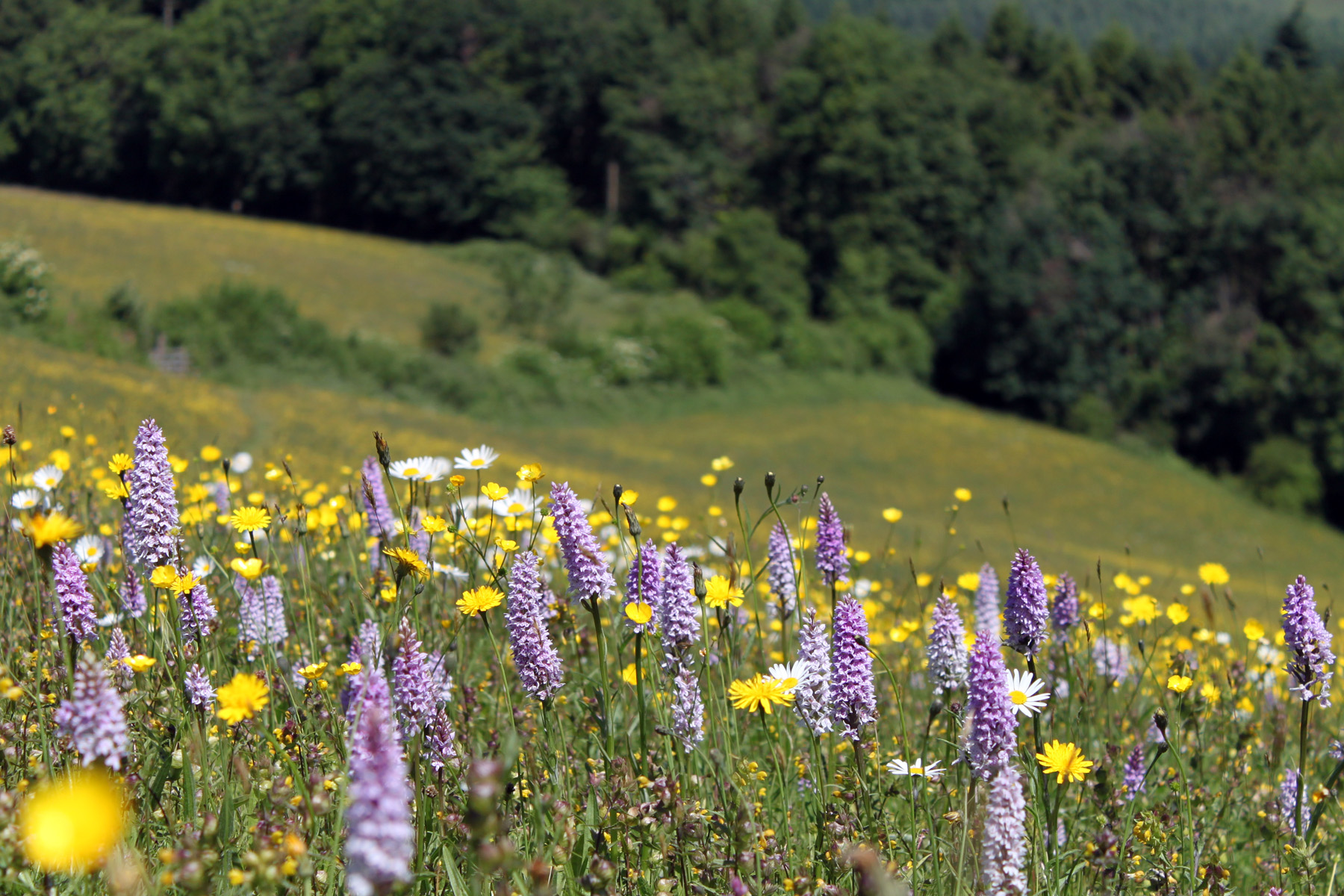Importance of Soils
The importance of looking after the soils on which our meadows grow is becoming more and more evident. Soils are essential for plant growth, health and resilience. Therefore, if healthy soils are maintained, resilient and productive swards will follow.
Earlier this summer PFLA hosted a talk on soil health and regenerative farming which focused on the science behind regenerative farming. During this webinar Nicole Masters spoke about the importance of soil health. If you are interested in digging deeper into how your soils function, here’s a short video on how you can improve soil structure and health.
Well managed diverse grassland swards are already storing carbon in significant amounts says Becky Willson. She has found that grazed diverse swards are increasing soil organic carbon by 0.1 – 0.6% per year. When these figures are analysed (using a general rule of 0.1% sequestering an extra 9 tonnes /ha) if you can sequester approximately 0.6% carbon, then you are holding 54 tonnes /ha. Broad leaved woodland sequesters between 4.5 – 6 tonnes per year. In this respect diverse swards ARE part of the solution to the climate emergency.
- Grassland Soil Health Resource Sheet taken from Herefordshire Meadows Group discussion in 2018.
- Soil Fertility- which wildflowers can tolerate more fertile grasslands
- A Farmers Guide to Increasing Soil Organic Carbon Under Pastures – Capturing carbon using soils is a great way to increase your soil health and reduce the risk of climate change. This PDF is great for those wanting to gain knowledge on how pastures can be used to sequester carbon. It is highlighted that improved pastures which include legumes, such as red clover, will boost productivity and have higher ability to sequester carbon.
- ReGenAg Chat: Beetlemania – with Ceri and Darren Mann and Bruce Thompson. Discover the importance of dung beetles and to found out more visit our Beetlemania News post. Darren and Ceri also have a great dung beetle Facebook page – British Scarabs .
If you are new to regenerative agricultural principles then a good way to start is with a spade and to read Gabe Brown’s Dirt to Soil. To find out more about Gabe Brown and the growing soil health movement, visit his page on the Soil Health Academy.
But if you want to explore more then look at local bioagroecolgist Ben Taylor-Davies’ Library. Cut and paste the following link into your address bar to download the reference library: https://www.herefordshiremeadows.org.uk/wp-content/uploads/2020/11/Bens-library-Nov-20.xlsx
Soil Analysis
Assessing soils nutrient content, pH and organic matter content can help identify why and where plants are dying and thriving
If you are keen to assess your soils yourself the simplest and most effective way to do this is to take a spade into the field and follow some of the guidance below. If you are unsure on these methods or want farm specific and bespoke one to one advice, do contact us.
- Soil Tests for Soil Mentor – a quick visual guide to carrying out soil analysis e.g. VESS Score and Slake Test
- Simple Worm Count – you can carry out a quick (30 minute) assessment of the soil biology and overall soil health in your meadow
- Earthworm Identification Chart: A guide used for the OPAL Soil and Earthworm Survey
- Soil Testing and Assessing Soil Texture guidance from Magnificent Meadows
- Monitoring Soil Carbon: a Practical Field, Farm and Lab Guide guidance from The Soil Carbon Project
- Natural England Technical Information Notes at the links below from The National Archives
- Soil Organic Matter and Soil Organic Carbon analysis is also a great way to assess soil and plant health. Here are a few information and fact sheets on how soil organic matter can be measured
Carbon Calculator and Farm Carbon Footprint
- Farm Carbon Toolkit: The aim of the Farm Carbon Toolkit is to ‘encourage and support farmers and growers to reduce their farm greenhouse gas emissions, increase their farm energy resilience and in doing so also improve their farm business in the future’.
- The Farm Carbon Toolkit has created the most comprehensive, accurate and user friendly Carbon Calculator, which is available to farmers to USE FOR FREE. Run by farmers for farmers.
- Becky Willson (Farm Carbon Toolkit Project Manager) has recently posted a webinar explaining low carbon farming and tips on how to use the farm carbon calculator, which can be found via Herefordshire Rural Hub.
- If you have any queries on using the calculator or data input issues contact us or Herefordshire Rural Hub.
- Using the calculator and the extremely useful and highly relevant toolkit allows users to assess where emissions reductions can be made and how to take action on your farm.


